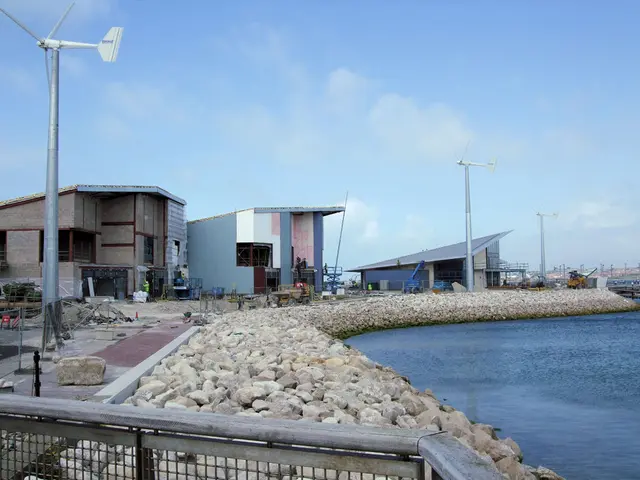Loosening the Grip: A New Era for U.S.- Syria Relations
U.S. authorities initiate the mechanism for eliminating financial restrictions against Syria.
Taking a significant step, the U.S. is easing sanctions against war-torn Syria, signaling a potential shift in American policy towards the Middle East.This move comes as U.S. Treasury Secretary Janet Yellen has announced their efforts to de-escalate the situation in Syria and foster peace.
Steering Forward
According to Yellen's social media post, the Treasury Department is implementing measures to soften the sanctions' impact. The goal is to foster a conducive environment for peace and stabilization in Syria. Back on May 13, President Donald Trump announced his intentions to repeal sanctions imposed on Syria, expressing a willingness to "give it a shot."
A Glimpse of Trump's Forum Speech
At a summit in Saudi Arabia, Trump elaborated that the previous sanctions, despite being "harsh and stifling," played a critical part in the region's history. He went on to explain that it is time for a new approach to reshape the future of Syria.
Turning the Corner
The Syrian Ministry of Foreign Affairs applauded Trump's decision, viewing it as a pivotal moment for the Syrian people. On May 12,The Times reported that Syrian authorities were open to granting the U.S. access to the development of natural resources in exchange for the removal of sanctions. Some parallels have been drawn with the agreement between Washington and Kyiv.
The Kremlin's Perspective
Russia, a key player in the Syrian conflict, has expressed its views on the U.S.'s intentions for renewed relations with Syria. While details remain scarce, the shift signals a potential redefinition of America's presence in the Middle East.
A Whiff of Opportunity
By lifting sanctions, U.S. companies are presented with an opportunity to participate in Syria's reconstruction, estimated to reach around $400 billion. This could provide an avenue for U.S. firms to rival their Chinese counterparts, potentially creating jobs in both Syria and the U.S. [1].
Stability and Influence
The removal of sanctions is seen as a means to support a new government in Syria, distancing itself from Iranian and Russian influence, ultimately promoting regional stability. This shift could diminish the influence of these countries in the region [1].
Strategic Advantage
Lifting sanctions could also benefit the U.S. by securing Gulf funding for Syria's reconstruction. A stable and prosperous Syria could alleviate refugee crises, weaken extremist groups, and eliminate Syria as a threat to Israel [1].
Access to Natural Resources
Although details remain murky, the potential for natural resource access may be on the horizon. Syria boasts substantial oil and gas reserves, although political and infrastructure challenges may hinder immediate large-scale extraction [1].
Economic Boost and Regional Stability
Increased U.S. investment in Syria's oil and gas sectors could yield benefits for American energy companies. A stable Syria could also attract international investors, creating opportunities for a more peaceful and prosperous region [1].
[1] Enrichment Data: The enrichment data suggests that the U.S.'s plan to lift sanctions on Syria is a strategic move aimed at stabilizing the region and countering the influence of Russia and China. This change in policy could open up economic opportunities for American businesses in the form of reconstruction efforts and involvement in natural resource extraction. The primary objectives are strategic and economic gains, including the reduction of refugee flows, weakening extremist groups, and creating regional stability. However, the specifics regarding natural resource access are not yet detailed in public announcements.
Financing opportunities in Syria's reconstruction could potentially rival Chinese counterparts, as U.S. companies look to invest following the easing of sanctions. The lifting of sanctions and potential access to Syria's natural resources, such as oil and gas reserves, could foster economic growth and contribute to regional stabilization.
Political implications are also significant, as the U.S. aims to diminish the influence of countries like Russia and Iran in the Middle East by supporting a new government in Syria, thereby promoting a more stable and stable regional environment.




